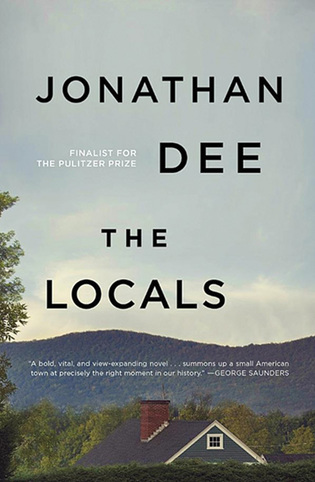 loading
loading
Arts & CultureReviews: January/February 2018Books on the Berkshires, James Madison, and the famine in Ukraine.  View full imageThe Locals Dan Shaw is the cofounder of RuralIntelligence.com. Without second-home owners to fuel their economies, the towns of the Berkshires of western Massachusetts would eventually resemble Appalachia. The “locals”—carpenters, landscapers, shopkeepers—may refer to their clients pejoratively as “the weekenders” or “summer people,” but their survival rests on the well-off migrants. “Dependency was the virus,” writes Jonathan Dee in his ambitious new novel, The Locals. In absorbing and lyrical prose, he explores this relationship and the socioeconomic chasm in the fictional Berkshire town of Howland, adjacent to the authentic towns of Great Barrington and Stockbridge. In the aftermath of 9/11, a Manhattan hedge-fund manager named Philip Hadi, who drives “some kind of black SUV that looked like it might have been part of a presidential motorcade,” seeks refuge in a town where the locals drive “rust-nibbled” pickup trucks. Like many city folk who transition from weekender to full-time resident (myself included), Hadi becomes involved in civic life. But he’s not interested in mixing with the locals. He just wants to ensure they maintain the Norman Rockwell aura, as essential to an outsider’s conception of the Berkshires as picnicking at Tanglewood. At a town meeting Hadi nominates himself for First Selectman (a New England term for a mayor) and promises to lower taxes without cutting services. “I want this town to succeed without losing its character,” he says. “I’ll meet temporary or emergency needs with my own money if necessary. I can afford it.” For the financially precarious locals, it’s an offer too good to refuse. Hadi keeps his promises and picks up the tab for expenses from septic repairs at the high school to the flower boxes on Main Street. This alt-democracy is a success for several years, until Hadi loses interest—and all hell breaks loose. You don’t have to live in a small New England town to understand that Dee is warning us that the social contract is fragile, and that American democracy is more vulnerable than we might imagine.
|
|